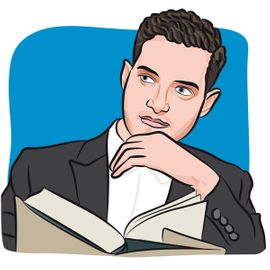- About Us
- Advertise / Support
- Editorial Board
- Contact Us
- CancerNetwork.com
- TargetedOnc.com
- OncLive.com
- OncNursingNews.com
- Terms & Conditions
- Privacy
- Do Not Sell My Information
- Washington My Health My Data
© 2025 MJH Life Sciences™ and CURE - Oncology & Cancer News for Patients & Caregivers. All rights reserved.
As the World Moves on, I’m Reminded at How Much Time Was Lost to Cancer

At just thirty years old, Steve was diagnosed with osteosarcoma, a rare and aggressive bone cancer. The journey has taken him through chemotherapy, multiple surgeries, and many different avenues of holistic health. An avid blogger, Steve shares his personal health regimens as well as love of music, movies and sports in his writing. Follow along his quest for wellness as he reacclimates into the world in spite of daunting statistics. You can connect with Steve on Instagram @steve.othercword, Twitter @othercword and his website, www.othercword.com.
Throughout my cancer experience, I’ve relied heavily on friends and family for support. But as they are moving on and starting families of their own, I realized how much time I’ve lost to cancer.
It’s been a rough couple of years for everyone. COVID-19, inflation, war… Stressful times all around.
To that, I’m at an age where most of my family and friends have recently started families and are working their way through the marathon that is raising kids. Most of the people I’m closest with are completely drained.
This has been a challenging adjustment because while I want everyone to go after what makes them happy, I’m still struggling through life after cancer. For the past five years, I’ve relied heavily on my social network as a major support system and now it’s been noticeably much less available.
When I’m stressed and overwhelmed by everything from grieving loss to transitioning and planning a future, sometimes I just need to vent, but opening up to loved ones has grown challenging the past few years. Even with my best friends, it sometimes feels like they’ll nod their heads along to what I’m sharing, like they get what I’m saying.
They’ll even throw in the ol’ “Ah dude, I can’t even imagine what you guys have been through…” But then it’s immediately followed with a suggestion like, “But eventually you just gotta let go and move on…” or “You can’t let fear hold you back.” It’s like the intensity of emotional trauma I’m trying to convey just isn’t getting through, despite their best efforts.
It’s also triggering because there seems to be less empathy from others for my situation — how I spend my time, what I feel up to taking on, etc.
People see me looking good, without as many physical symptoms as before and questions come out, like, “What do you do all day?”
I asked a friend who's also a cancer fighter how they respond to this. She simply replied, “I tell them not dying.” Another told me they just make stuff up because their friends and family don’t comprehend all that goes into recovering from crippling PTSD and trauma from the world you worked so hard to build being demolished out of nowhere, and the fear that your health could give out again at any given second (while losing beloved cancer fighter friends along the way).
Back on the other planet which is the real world, most friends/new parents my age have very legitimate strains; raising a child is relentlessly intense, especially during the pandemic. But my wife and I have been living in survival mode, fighting for our lives since well before the COVID-19 pandemic, and we didn’t choose cancer.
I read these thoughts back as I’m typing and hate how defensive and even resentful they come off. Then, I feel guilty and selfish because so many people dropped everything and were amazing during treatment when I needed them most.
Maybe watching the world move on has been triggering because it also reminds me of how much time I lost. I’m 37 now but was diagnosed at 30 years old— the age I still feel inside. It's like I’m a version of Tom Hanks in “Big,” faking the near decade of basic life experience I’ve missed — the type of wisdom you pick up encountering new people and different situations every day.
Building communities of support groups can help, but sometimes I just miss the old days when I was on (what felt like) the same playing field as everyone else. It seemed like there was more to relate to, and it felt easier to connect. Fighting cancer can be a lonely pursuit. But what are you going to do?
In moments like these, I try to remind myself to focus on gratitude and the things I can control. I have my health. I have such an amazing wife and the best little 10-pound guard dog. And most importantly, I have hope and optimism that as I keep prioritizing my healing and investing in therapy,
I can work through the trauma and instead of simply recovering from a past that plagues me, I can work towards a future full of new dreams and excitement.
For more news on cancer updates, research and education, don’t forget to subscribe to CURE®’s newsletters here.
Related Content:



